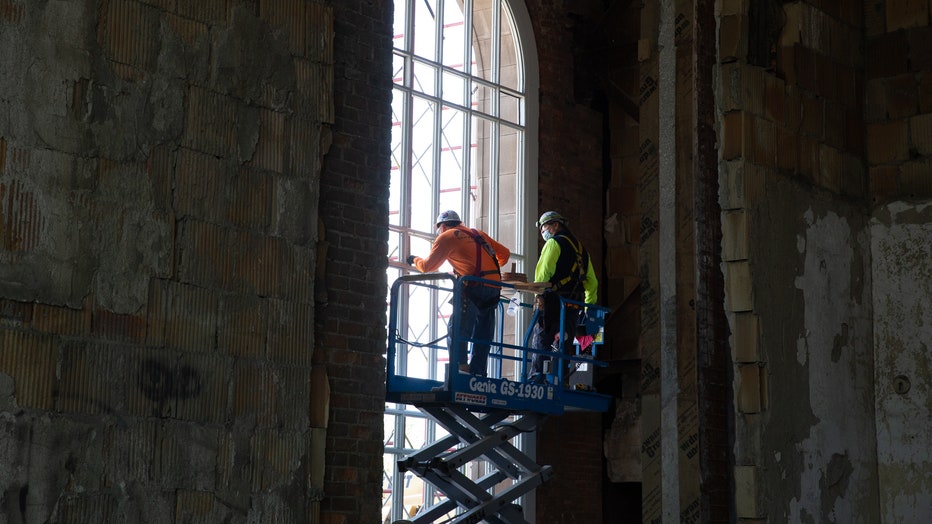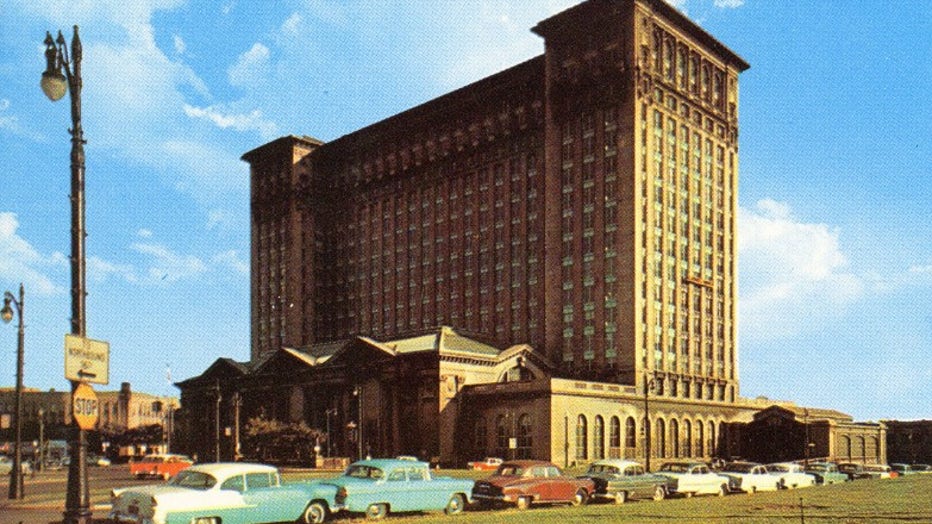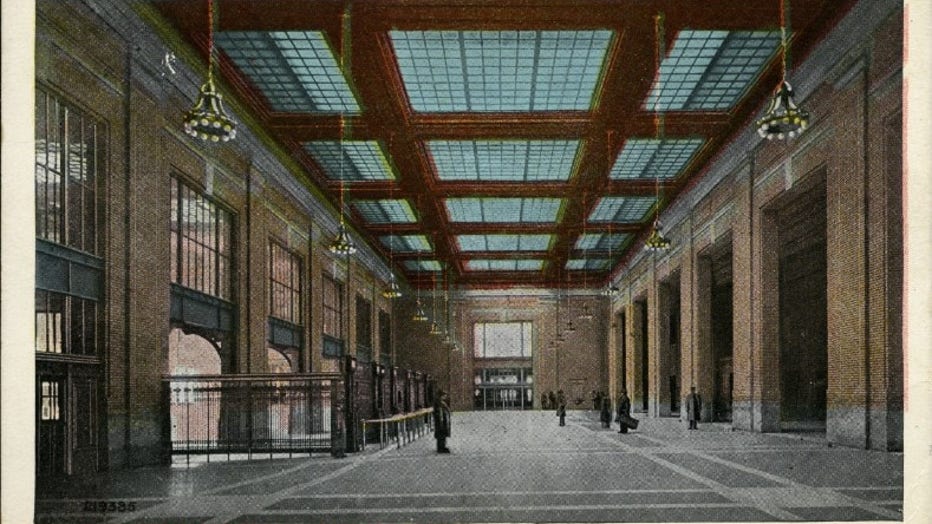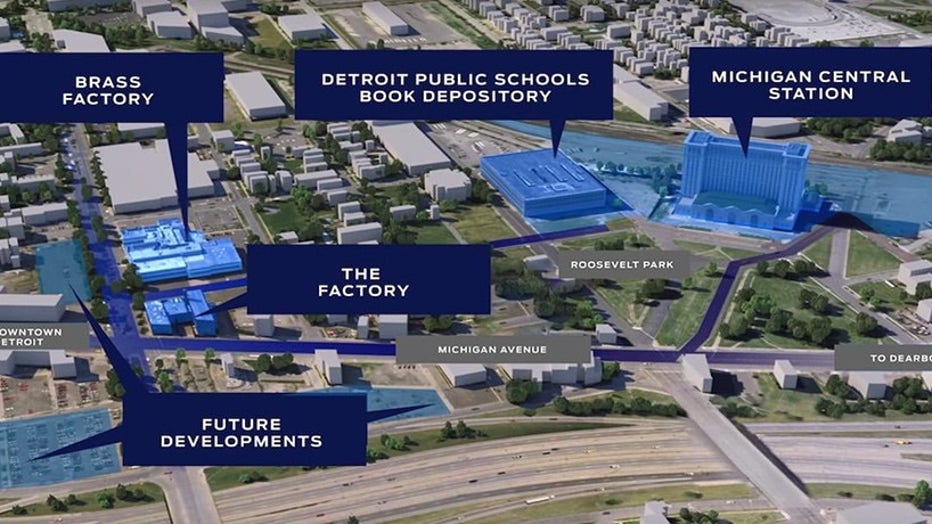Final phase of Michigan Central Station restoration underway 3 years after Ford purchased Detroit depot
Crews work on Michigan Central Station on May 27, 2021. (Photo: Amber Ainsworth/FOX 2)
DETROIT (FOX 2) - In June 2018, Ford Motor Co. announced that it was the new owner of Michigan Central Station.
The building had been vacant for 30 years when Ford shared the news and immediately got to work restoring the historic Detroit train depot.
The first phase entailed winterizing MCS. Over the decades it was empty, the building filled with water numerous times and suffered extensive water damage. The building was also stabilized. During phase two, the mechanical and electrical systems were replaced and exterior masonry was restored. Phase three, the final phase of the project, involves finishing and restoring the interior of Michigan Central.
PHOTOS: Crews discover artifacts while restoring train depot
That final phase is currently in progress, with work expected to be finished in late 2022 or early 2023.

Crews work inside Michigan Central Station on May 27, 2021. (Photo: Amber Ainsworth/FOX 2)
Crews are working to restore plaster and rebuild parts of the building that will bring it back to its former glory when it was a grand, bustling transportation hub. The project has been focused on combining elements from the building's past with new technology, and old photos of the depot have been used to make that happen.
Michigan Central Station history
Construction on the building began in 1910 and the train station was slated to open in 1914. However, the first train left MCS for Saginaw Bay on Dec. 26, 1913, after a fire prevented the old train station from being used.
Many people came and went through Michigan Central in its heyday, but as train travel declined, the depot began facing problems.

Michigan Central Station in 1955 (Photo: Detroit Historical Society/Ford)
After the main waiting room of MCS was closed in 1967, Amtrak took over the station in 1971, did $1 million in renovations, and added a bus terminal.
It wasn't enough to save the depot, though. Amtrak left for a smaller building and MCS was sold to a New York-based company. The last train left for Chicago on Jan. 5, 1988, and Michigan Central shuttered.
The building, which had been added to the National Register of Historic Places in 1975, fell into a state of despair. Scrappers stripped it, while vandals caused damage both inside and out.
Several plans were proposed for the site after it was purchased by Manuel Moroun's Controlled Terminals Inc. in 1996, including making it a headquarters for police or a casino, but it continued to remain empty aside from people who managed to get into the building.

The concourse of Michigan Central Station in 1915. (Photo: Detroit Historical Society/Ford)
The future
Michigan Central Station will be part of Ford's Corktown Campus. The former train depot will house members of the automaker's electric vehicle team.
The campus will include a 30-acre walkable community surrounding the train station.
Other buildings that will be part of the space include the Book Depository, which is being revitalized into a maker space; The Factory, where members of the autonomous vehicle team already work; and new developments.
After meeting with stakeholders and residents, Ford released a plan last year that included more public amenities, green spaces, walking and biking trails, public art, and open areas. A key goal is to have amenities, including stores and a daycare, all within a 20-minute walk.

(Photo: Ford)
Ford has also said it wants to keep the main floor of MCS open for the public to visit. Early renderings showed shops occupying the back room of the building.
"Few works of architecture better embody the past, present, and future of Detroit like Michigan Central Station. This plan – led by Ford and forged in collaboration with local stakeholders – provides a vision for how the reimagined station, with the public spaces and buildings that surround it, can together become a unique and authentic destination for community members, innovators and visitors alike," said Vishaan Chakrabarti, founder and creative director of Practice for Architecture and Urbanism. "Over time, I am confident that this project will become a global model for how to grow and build our cities while celebrating the narratives and structures that define our past."

